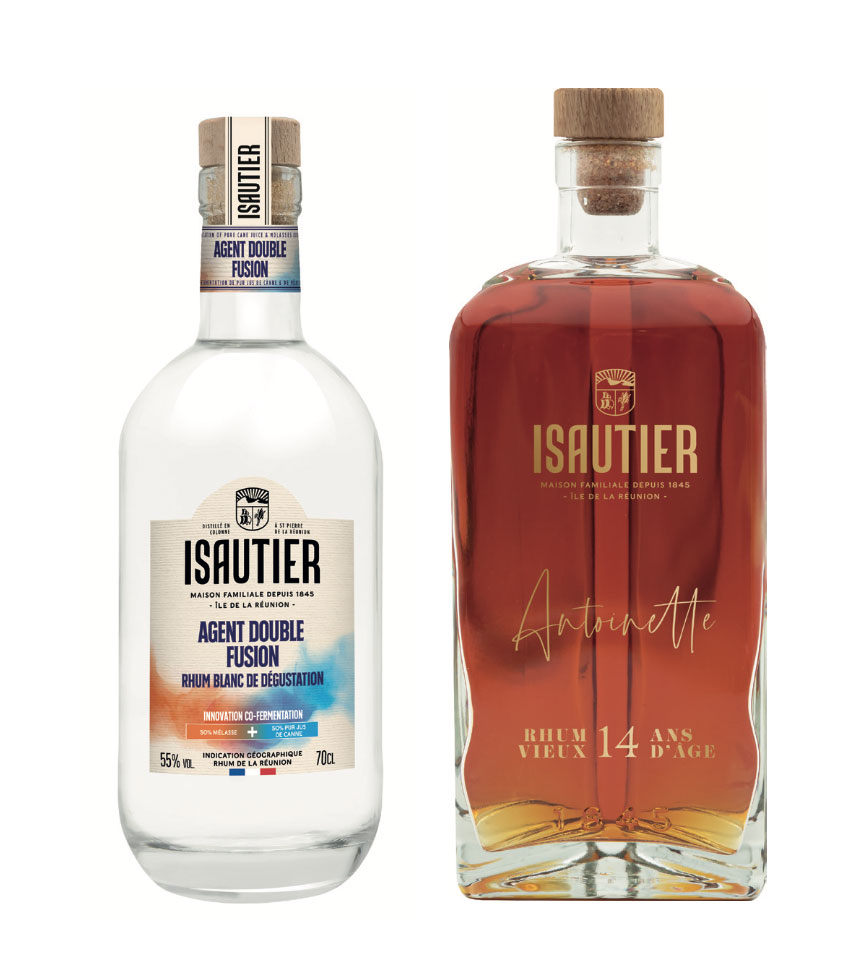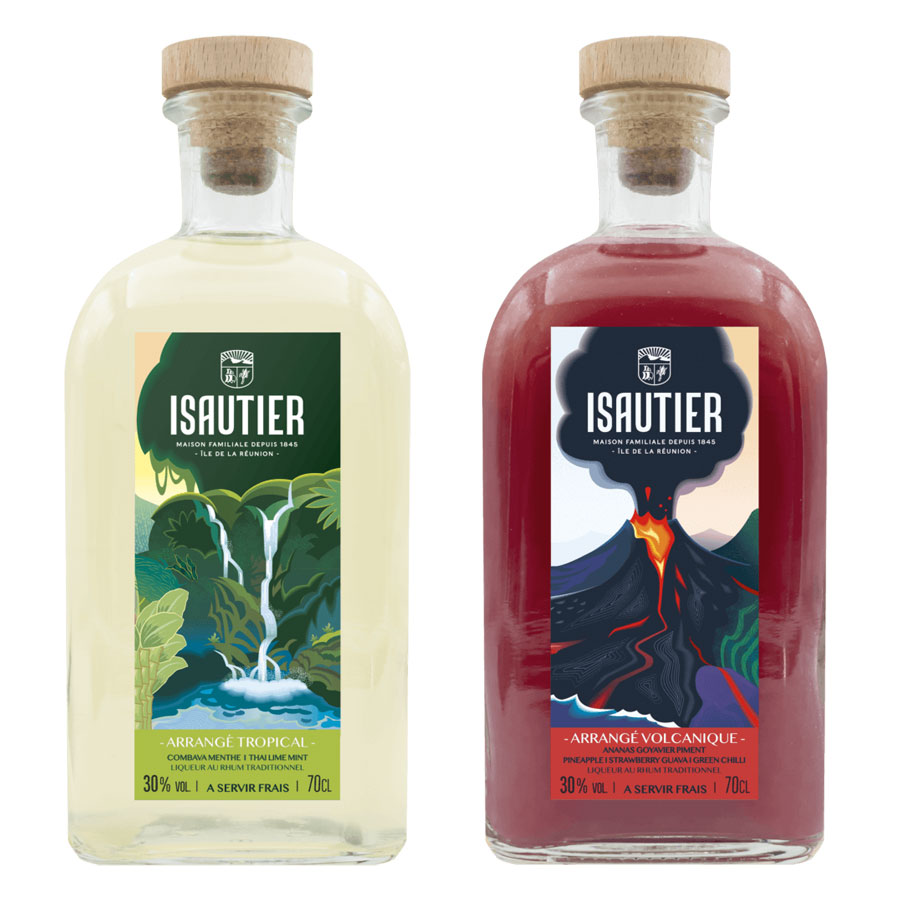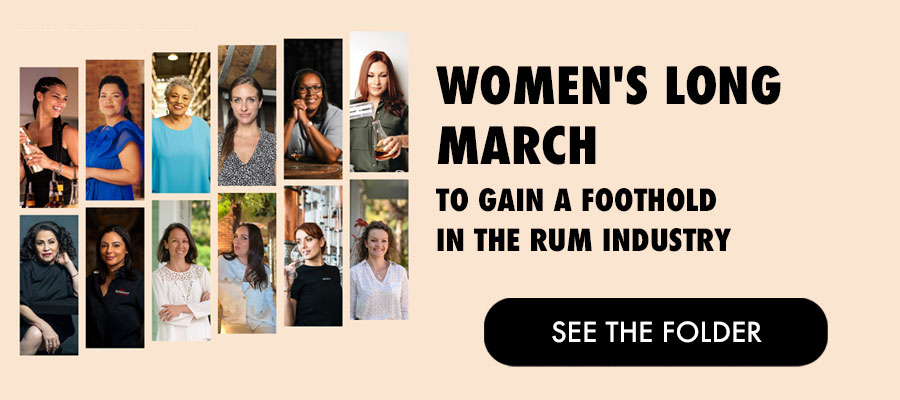Louise Bouilloux (LB) is the one who invents new recipes for the Reunion Island brand’s arrangés and punches, while Marie Ferrand (MF) oversees its aged rums. They are therefore at the heart of Isautier’s saga and its success.

First, do you think this type of article is always useful?
LB: I’m not a very committed feminist, but it’s a subject that’s close to my heart. I started my professional career in an environment, charcuterie, where sexism was still very present and very problematic.
This idea for an article makes sense because I feel that there are more and more women, or at least more and more women who are being highlighted in the rum industry.
MF: Actually, I’m not a feminist at all. And it’s true that I’ve been asked this question quite a few times, in articles or interviews or elsewhere, even outside of work, without it necessarily being something that will be written or reported, even within my family or among friends.
However, I haven’t experienced any particular problems in this regard. I often say that I work in the novel industry rather than being categorised as a man or a woman. So, is there still a need for this kind of article? I would be more nuanced.
Were you well received in the rum industry?
LB: I joined the rum industry in February 2019, directly with Maison Isautier. I already had experience in the wine industry, from an internship in 2012. In both cases, I was well received. I didn’t encounter any particular difficulties due to being a woman. At least internally. Afterwards, I had to deal with comments such as, ‘Ah, so you’re in charge of product development?’ or ‘Really, a woman in that position? That’s surprising, it’s not common.’ But can we really call that sexism? I don’t think so.
MF: I’ve been in the rum industry for 12 years, having joined Maison Isautier, and from the outset I was made to feel welcome by both my male and female colleagues. Generally speaking, I believe that as long as there is respect for others, whether male or female, and whether there is a hierarchical relationship or not, as long as there is mutual respect, things will go well.
Since you entered this industry, have you seen things change?
MF: If we go back 30 years, there were probably fewer women. There were already more when I started, but perhaps they weren’t as visible. They worked a bit behind the scenes, whereas in recent years we’ve been hearing more about them. There are many reasons for this, but also simply the fact that rum has grown in popularity and manufacturers have recruited more equally than before.
At Isautier Boissons, for example, 53% of managers are women. Is there a feminine way of making rum?
MF: I don’t know if there is a feminine way of making rum, but there may be some rums that have a side to them that could be described as somewhat feminine. At Isautier, I took over the Chai, which has been around for 20 years, when I started 12 years ago.
I really like this aspect of passing on knowledge. Although I wasn’t there at the beginning, it results in rums with fine, balanced aromas, which can be seen as feminine. It’s true that you could contrast this with more raw, direct aromas that could be likened to a masculine side.
LB: In fact, I don’t think it’s necessarily the aromas that are feminine or masculine in the gendered sense of the term, but rather that they are created by people who are passionate about them.
They put part of their soul into it, part of their character, their perspective, their perception, their desire, their vision of the final product. And so, it’s more that than gender that we find in the products.
Is rum still a drink for men?
LB: Historically, spirits and strong alcoholic beverages were associated with men because they were synonymous with virility. Conversely, as soon as alcoholic beverages, even low-alcohol ones, were associated with women, it was considered immoral, marginalised, synonymous with degradation. I think this is a cultural effect that we still experience today.
MF: I agree with Louise, for me it’s really a cultural aspect. Practices have changed in terms of recruitment and job positions. Although I haven’t had any problems internally, externally I sometimes hear comments about how rum tasting isn’t really for women. I see this among my friends too. It’s often the men who stay up in the evening to enjoy a good whisky or rum, while the women put the children to bed.



